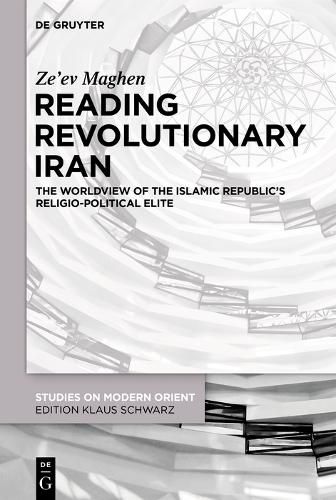Readings Newsletter
Become a Readings Member to make your shopping experience even easier.
Sign in or sign up for free!
You’re not far away from qualifying for FREE standard shipping within Australia
You’ve qualified for FREE standard shipping within Australia
The cart is loading…






This title is printed to order. This book may have been self-published. If so, we cannot guarantee the quality of the content. In the main most books will have gone through the editing process however some may not. We therefore suggest that you be aware of this before ordering this book. If in doubt check either the author or publisher’s details as we are unable to accept any returns unless they are faulty. Please contact us if you have any questions.
The burden of this book is twofold. The first half is charged with identifying and critiquing the many prejudices and misconceptions that inform popular - and even scholarly - perceptions of Islam and Iran, those rooted in neo-conservative hostility no less than those arising out of pro-regime apologetics or (what we will argue are) misleading "post-modern" methodologies. This is a key component of our overall investigation, both because the illusions occluding our view of the Islamic Republic are (we assert) piled so high and deep, and because setting the record straight on many a contentious issue is the most appropriate context for elucidating the positive positions of the revolutionary clerics. These last represent, perhaps more than anything else, the premier critics of Western civilization in our day, and their ideologies may therefore be best comprehended when placed in dialogue with, and in polemic against, the worldviews of that civilization (which in their own turn are often most profoundly understood when offset by their present-day Islamist nemeses). As noted above, it is not all contention: unexpected meeting points and congruities emerge, as well, when the activist Shi'ite clerics are placed in the same virtual room with their occidental counterweights.
The second half of the book deploys a large number of rarely tapped primary sources, both ancient and contemporary, in order to tease out the attitudes of the class of Muslim scholars recently and currently at the helm of the Iranian state in a variety of significant fields, including the role of religion in society, the relationship between democracy and theocracy, the modern Western Weltanschauung, the Sunni-Shi'i schism, and much more. Though the author parses, and provides background and context for, the myriad citations from these influential Muslim thinkers, the ultimate objective is to allow them to speak for themselves.
$9.00 standard shipping within Australia
FREE standard shipping within Australia for orders over $100.00
Express & International shipping calculated at checkout
This title is printed to order. This book may have been self-published. If so, we cannot guarantee the quality of the content. In the main most books will have gone through the editing process however some may not. We therefore suggest that you be aware of this before ordering this book. If in doubt check either the author or publisher’s details as we are unable to accept any returns unless they are faulty. Please contact us if you have any questions.
The burden of this book is twofold. The first half is charged with identifying and critiquing the many prejudices and misconceptions that inform popular - and even scholarly - perceptions of Islam and Iran, those rooted in neo-conservative hostility no less than those arising out of pro-regime apologetics or (what we will argue are) misleading "post-modern" methodologies. This is a key component of our overall investigation, both because the illusions occluding our view of the Islamic Republic are (we assert) piled so high and deep, and because setting the record straight on many a contentious issue is the most appropriate context for elucidating the positive positions of the revolutionary clerics. These last represent, perhaps more than anything else, the premier critics of Western civilization in our day, and their ideologies may therefore be best comprehended when placed in dialogue with, and in polemic against, the worldviews of that civilization (which in their own turn are often most profoundly understood when offset by their present-day Islamist nemeses). As noted above, it is not all contention: unexpected meeting points and congruities emerge, as well, when the activist Shi'ite clerics are placed in the same virtual room with their occidental counterweights.
The second half of the book deploys a large number of rarely tapped primary sources, both ancient and contemporary, in order to tease out the attitudes of the class of Muslim scholars recently and currently at the helm of the Iranian state in a variety of significant fields, including the role of religion in society, the relationship between democracy and theocracy, the modern Western Weltanschauung, the Sunni-Shi'i schism, and much more. Though the author parses, and provides background and context for, the myriad citations from these influential Muslim thinkers, the ultimate objective is to allow them to speak for themselves.